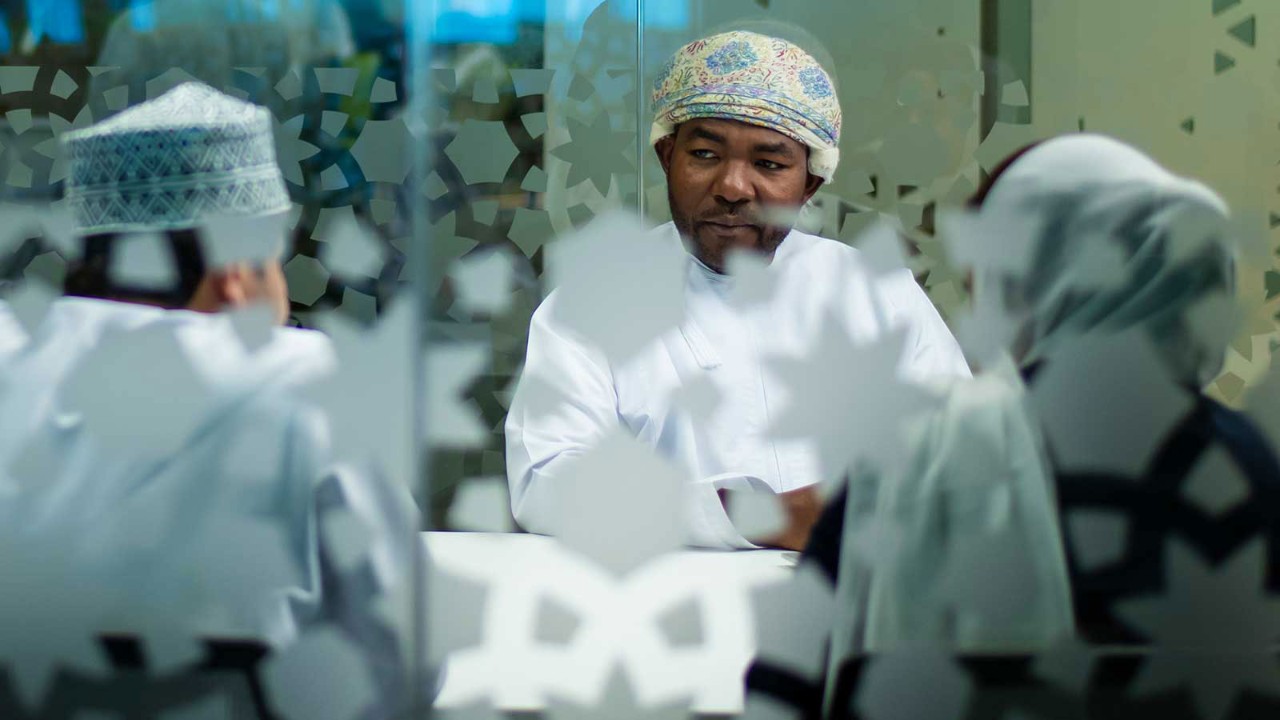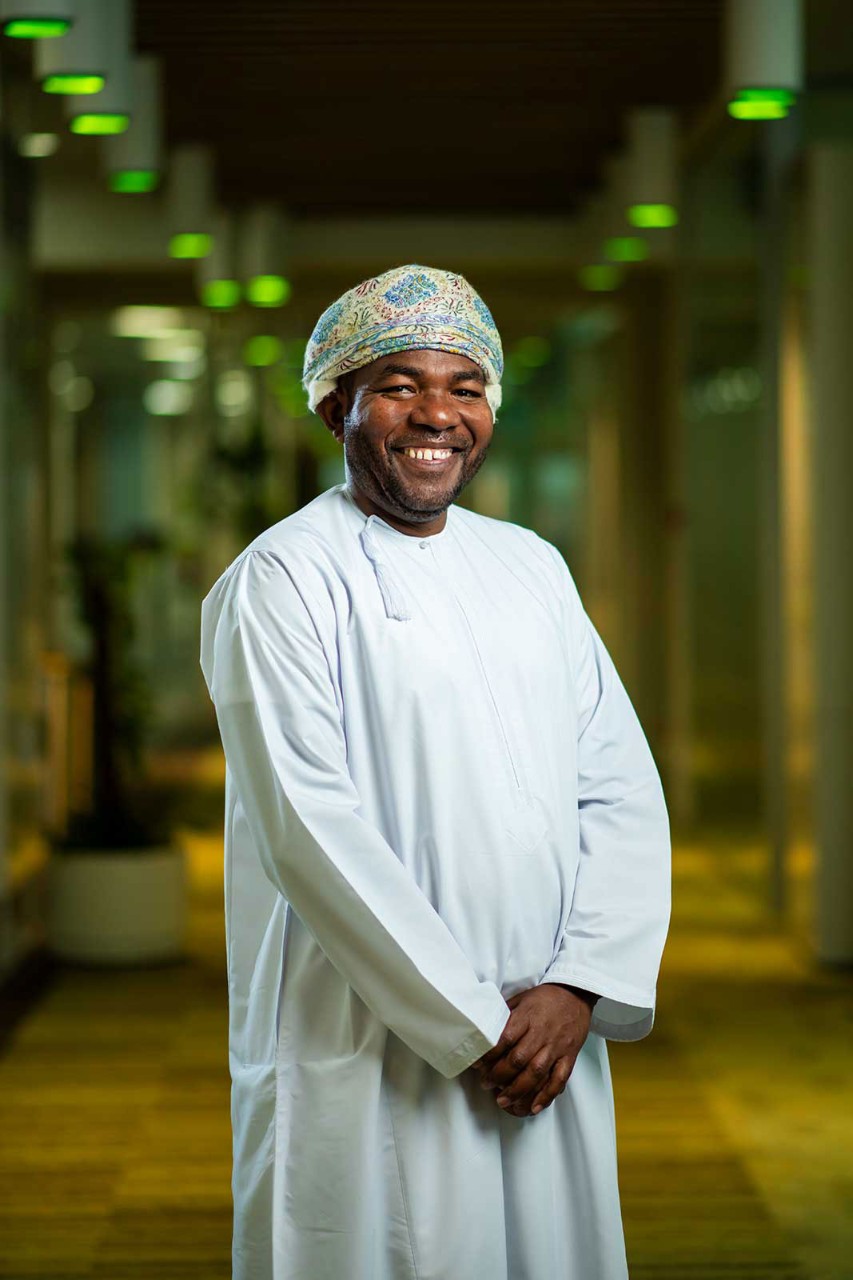
Zahir Al Wahaibi FCCA is devoted to harnessing the irresistible force of change. And at Petroleum Development Oman (PDO), the sultanate’s major hydrocarbon exploration and production company, where he works as finance operation excellence manager, there are two distinct levels of change for him to deal with.
On one level, he is driving the finance transformation agenda of the company – which operates on a revenue-neutral, no-profit, no-loss basis – to ensure it is fit for future development. But on another, wider level, he sees finance as playing an integral role in the evolution of the company away from oil towards a more sustainable future, in line with Oman’s Vision 2040.
PDO’s purpose now, Zahir says, is ‘building a sustainable, low-carbon energy company to maximise value for Oman’.
‘I champion the enhancement of efficiency, effectiveness and user experience’
Pursuing excellence
Zahir’s career at PDO, which is 60% owned by the Oman government, began in 2001 when he joined as a senior financial accountant, following three years at the ministry of finance. The ensuing 20+ years have seen him take on different responsibilities, achieving ACCA qualification along the way.
Today, he is the finance operation excellence manager, reporting directly to PDO’s CFO and leading a team of 15 senior finance professionals and subject matter experts and a supporting finance community of 450 staff. ‘I am champion of the finance transformation strategy,’ he says, ‘including performance management, PDO governance revamping, process and continuous improvements and agile ways of working, as well as the finance digitalisation agenda with objectives to enhance efficiency, effectiveness and user experience.’
It is, he says, a ‘landscape filled with both opportunities and challenges’, with technology inevitably at the heart of these opportunities. ‘Expectations are growing very quickly, and the more data we have, the greater the need for smart technology,’ he says.
‘Intelligent automation lets the finance team transform into value drivers’
PDO in numbers
US$5bn
Capital expenditure (2022)
US$1.9bn
Operating expenditure
202
Number of producing oil fields
43
Gas fields
11,000
Active wells
33,000km
Length of pipelines and flowlines
Digital challenges
For Zahir, the new digital landscape throws up its own challenges. First, there is the speed of change – PDO’s introduction of robotic process automation five years ago helped slash the year-end financial close-down from seven days to two.
‘Intelligent automation is now amplifying operational efficiencies,’ he reports, allowing the finance team to ‘transcend traditional roles, transforming into strategic advisers and value drivers in organisational decision-making’.
This, however, leads to a second challenge: more technology requires higher levels of risk management and awareness of cybersecurity issues and regulatory requirements. While some employees may fear job losses, Zahir sees digital transformation as more about opportunity, with the time savings gained from increased automation enabling a shift towards business partnering. He believes generative artificial intelligence will also confer benefits, helping to create financial reports, for instance.
‘ACCA fosters a mindset for ethical and strategic decision-making’

‘I also see the dedicated focus on sustainability opening up avenues for finance to play a leading role in ESG reporting, aligning financial objectives with broader societal and environmental concerns,’ he adds.
That said, there remains the perennial concern of talent shortages. To combat this ‘critical challenge’, Zahir is focusing on effective recruitment, a clear competence development framework and targeted development programmes that include future skills.
Career shaper
Zahir’s own professional education journey began during his graduate studies – he gained a finance and accounting degree from the UK’s Salford University before studying for a master’s in international banking and finance. His qualification as an ACCA professional in 2007 was, he says, ‘a milestone that significantly shaped my career. This credential not only equipped me with technical skills, but also fostered a mindset for ethical and strategic decision-making.’
While he has been with PDO for most of his professional career, the ACCA qualification was key in opening doors to diverse roles within the organisation, equipping him with the skills to advance from infrastructure finance manager, chief accountant and deputy finance controller to strategic finance manager and finally finance operation excellence manager. ‘In each of these roles, the qualification enabled me to effectively manage complex financial strategies, optimise accounting practices and lead significant strategic financial projects at PDO level and beyond.’
‘PDO is committed to ground-breaking technologies to align with a greener future’
Progress
The development of PDO’s finance function mirrors that of the organisation itself. ‘Throughout its evolution, PDO has not only adopted but also pioneered advanced technologies and sustainable methodologies,’ says Zahir, who is proud of PDO’s progress towards becoming a sustainable, low-carbon energy company. ‘Significant steps have been made in flare reduction, renewable energy adoption, efficient water management and enhancing energy efficiency, which have led to measurable improvements in reducing our carbon footprint and optimising resource utilisation.
‘Our solar energy projects have significantly cut down on traditional energy consumption, while our innovative water management techniques have set new standards in environmental stewardship.’
PDO, he says, is committed to introducing ‘ground-breaking’ technologies to align itself with Oman’s own long-term vision for a greener future. This was demonstrated at the recent COP28 meeting in Dubai, where it was highlighted that the sultanate aims to become a leading producer of green hydrogen.
‘The financial industry is dynamic, so diversify your skills’
Keep evolving
Zahir’s career echoes this diversification, which he sums up by saying: ‘A consistent thread in my journey has been an unwavering commitment to continuous learning and adaptability in response to the ever-evolving financial landscapes.’
He urges other finance professionals to embrace lifelong learning. ‘The financial industry is dynamic, so diversify your skills beyond traditional financial acumen toward the new-age skills, build a strong professional network, uphold ethical conduct, and consider further education and professional certifications like ACCA.
‘A successful finance career involves more than numbers. It requires a deep understanding of the broader impact of financial decisions.’



